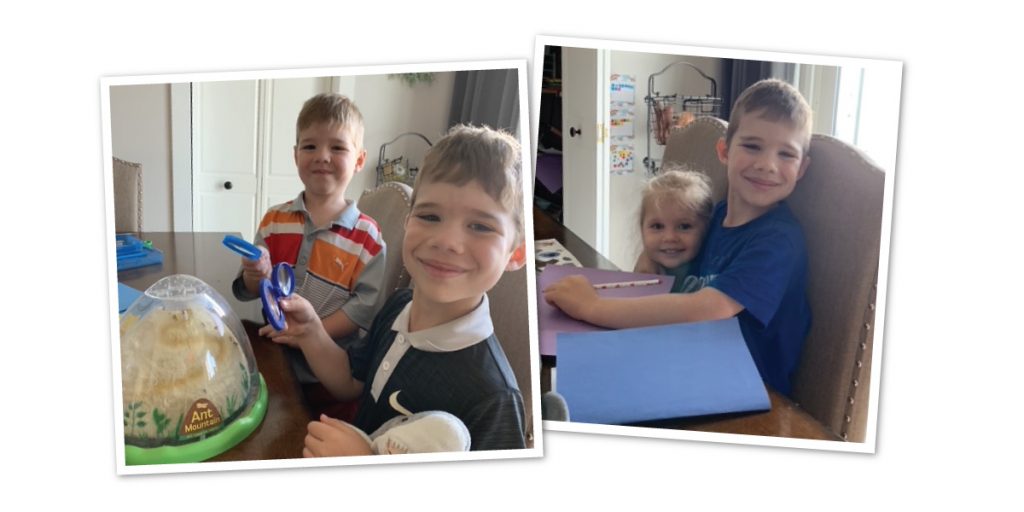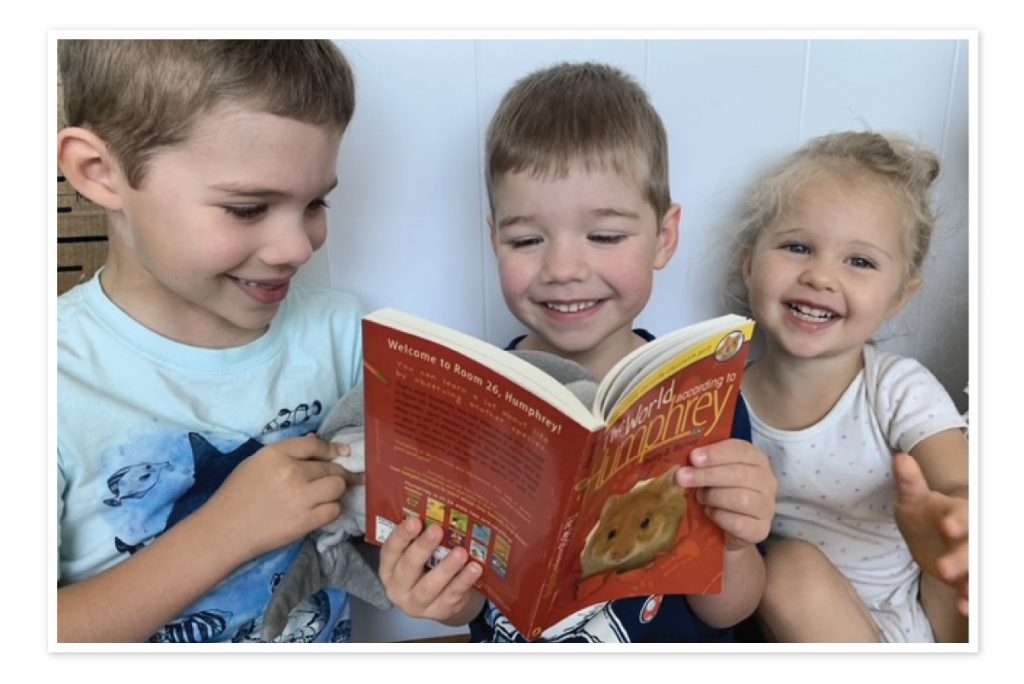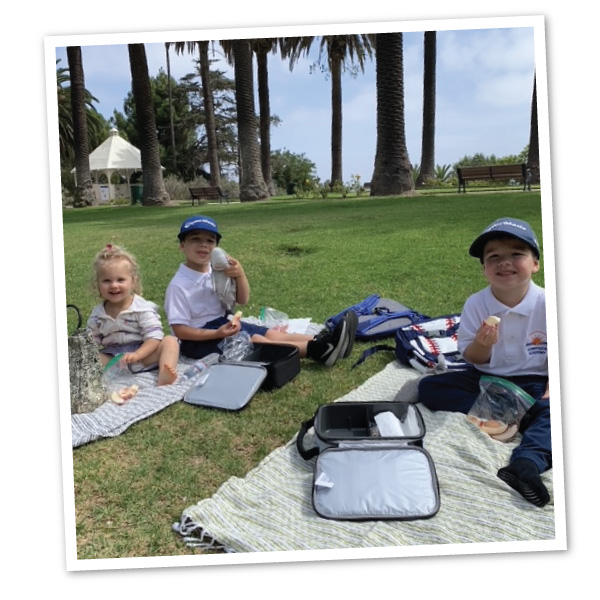
Each month the Sonlight team will choose a current family to highlight by sharing their #sonlightstories. If you’d like to shine a light on your family, apply here for a chance to be featured.
Meet the Buckler Family!
Andrew and Sierra homeschool their three children, Matthew (6), Hunter (4), and Lana (2), in California. They are first-year homeschoolers. While researching her curriculum choices, her neighbor shared that they kept coming back to Sonlight after trying other options. Sierra loved the Sonlight philosophy and that it was fully planned for them. As a first-time homeschool family, she felt comfort in knowing that everything needed was in one place. She was also excited that it was a Christ-centered curriculum, and Sierra loved that it was literature-based.
Sierra is aware that many families try a lot of different curriculums before finding what works best for their family. She is so thankful to her friend for introducing her to Sonlight because it is perfect, and they love it.
I feel so lucky and blessed that I found Sonlight so early in our homeschooling journey. We hit the homeschool jackpot because we found what works so perfectly for our family. ~ Sierra Buckler
Homeschool Discovery
Sierra was blessed to get to stay home with their children since they were born and has always enjoyed teaching them. Sierra began to feel it was her calling to be raising my children and nourishing their little hearts and minds.
"I think back then I had this hidden desire to homeschool, but I was unfamiliar with it. I didn’t know anyone who had done it before. I’ll admit I had some wrong preconceived notions about homeschooled kids. Since I was unfamiliar with it, I definitely lacked confidence within myself." Sierra Buckler
Sierra never lost that feeling, that desire, that little spark inside. All during this time, her mom would mention how she thought Sierra could homeschool and how great she thought Sierra and her husband would be at it. Circumstances began to line up that the subject of homeschooling kept arising making it evident that God was working through her because she would just continue to mention it and plant that little seed that started to build Sierra's confidence that, “Hey, maybe I could do this!”
“I was unsure and not fully confident yet, but we decided to take a direct involvement in their education. We discovered Sonlight and embarked on this beautiful journey all together.” ~ Sierra Buckler
Homeschool Desires
The Bucker family started to seriously consider homeschooling when their oldest son was four. They didn’t want their children to spend so much time away from home. They didn’t think the kids needed to be away from home for 6+ hours to receive the best education and maybe be influenced by worldviews that didn’t necessarily align with the Christian beliefs the Buckler family holds. They wanted their children to develop a great love for learning. Sierra and Andrew wanted more quality time with their children and to create a family that would grow and thrive together. The Buckler kids could play, be creative, be outdoors playing, and get lost in their imaginations. They knew homeschooling would give them the opportunity to do all those things. When schools closed down in person due to COVID, it was the final nudge the Bucklers needed to make that decision to homeschool. They're really thankful for how it worked out because it wasn’t their vision at the very start.

"We wanted our children above all else to know God and love God, and we wanted to inspire them to honor him every day.” ~ Sierra Buckler
Homeschool Devotion
Because this is their first year of homeschooling, they know they still have a ton to learn. The Bucklers discovered that teaching is natural because as parents we are the first teachers to our children in life. There will be flaws in your homeschool, just as there would be in school anywhere. The family feels that they have grown closer together and you need to surrender the idea of what the ideal homeschool day is. There will be unanticipated situations that will arise. The Bucklers try to remember that the true way to live is to enjoy every moment that passes and the true beauty of life is in those little, everyday things around them.
"One thing that was big for me, an encouraging word for anyone considering homeschooling. You can do it! God gave you these children, made you their parent, you’ve already taught them so much, you are more than capable of doing it." ~ Sierra Buckler
There is always an opportunity to learn, and Sierra tries her best to guide her kids with grace when they’re not getting it, frustrated or overwhelmed. There are days she needs to take a break and show them love. The way she interacts with her children is more important than keeping up with a schedule. The Buckler children’s hearts and minds are more valuable than the checklist. Sierra offers "For anyone considering or thinking about homeschooling, you will never regret this time you have with your children watching them grow and learn at their own pace. Being able to see their strengths and help strengthen their weaknesses is priceless. Give yourself grace. It is a beautiful journey that is worth taking!"
Buckler First Year Favorites
In their first year of Sonlight Matthew and Hunter selected these as their favorite readers. They also say science is their favorite subject.
The World According to Humphrey
Ecosystems, Meteorology, Physics, and Engineering Design Science K
You can learn more about the Buckler family’s Sonlight experience by listening to their full interview on the Sonlight Connections podcast.






